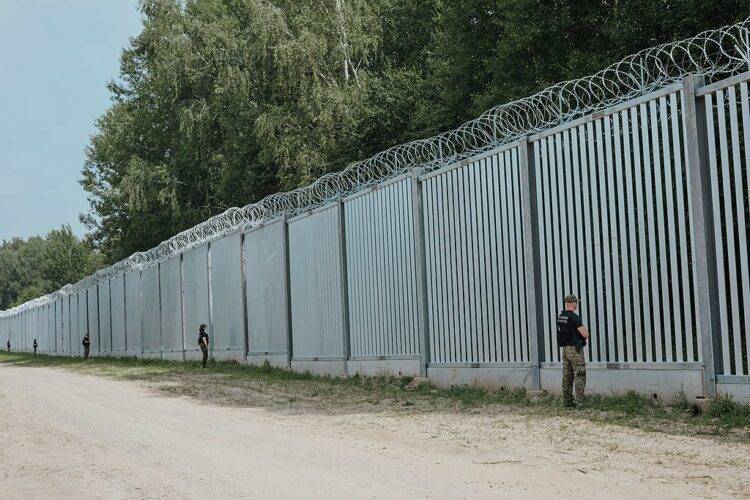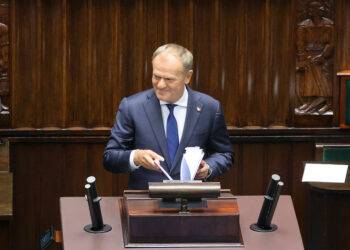Poland must regain full control over who enters the country, Prime Minister Donald Tusk said during a speech at the Civic Coalition convention in Warsaw. He presented the government’s new migration strategy, titled “Regain Control, Ensure Security,” emphasizing that a key element will be the temporary suspension of asylum rights, a move he intends to push for recognition across Europe.
Tusk stressed that one of the most significant issues facing Poland, Europe, and the world today is the rise in illegal migration. According to the prime minister, this is driven by hostile states like Belarus and Russia, as well as human traffickers who exploit asylum laws. Tusk asserted that his government would reduce illegal migration to a minimum and eliminate practices that undermine Poland’s security. “We will eradicate these practices down to zero,” he promised.
In addition to curbing illegal migration, Tusk’s strategy includes measures to encourage the return of Polish citizens and people of Polish descent from abroad. He noted that Poland is becoming an increasingly attractive place to live, due to the country’s investments in defense and security, which he argued enhance Poland’s global standing.
One of the most controversial elements of Tusk’s migration plan is the temporary territorial suspension of the right to asylum. Tusk called for European recognition of this measure, highlighting how it has been exploited by leaders like Belarus’ Alexander Lukashenko and Russia’s Vladimir Putin to destabilize Europe. According to Tusk, asylum rights are being abused, contradicting the very principles they were designed to protect.
BREAKING:
— Poland 24 🇵🇱 (@poland24com) October 12, 2024
Poland temporarily suspends the right to asylum.
"Poland must regain full control over who enters the country," said Prime Minister Donald Tusk said . https://t.co/aEypwt3j4N
The prime minister also took aim at the migration policies of the previous Law and Justice (PiS) government, accusing them of facilitating illegal migration and jeopardizing national security. He asserted that PiS was “the most pro-immigration government in Europe,” responsible for weakening both Poland’s borders and those of the European Union.
Tusk underscored that Poland’s migration policy is primarily focused on safeguarding the country’s security. He was adamant that Poland will not accept any European Union policies that threaten this goal. Referring to the EU’s migration pact, he declared, “We will not implement any European ideas if we are sure they undermine our security.”
The new migration strategy will be discussed at a government meeting on October 15, where it is expected to lead to a series of legislative reforms. These reforms will address visa issuance and other key aspects of immigration management, as explained by Maciej Berek, head of the Committee of Ministers.
This marks a decisive step in Poland’s approach to migration, as the country navigates rising geopolitical tensions and growing pressure at its borders, particularly with Belarus. While the strategy has already sparked controversy, it reflects the government’s commitment to maintaining national security amidst the broader European debate on migration.

















